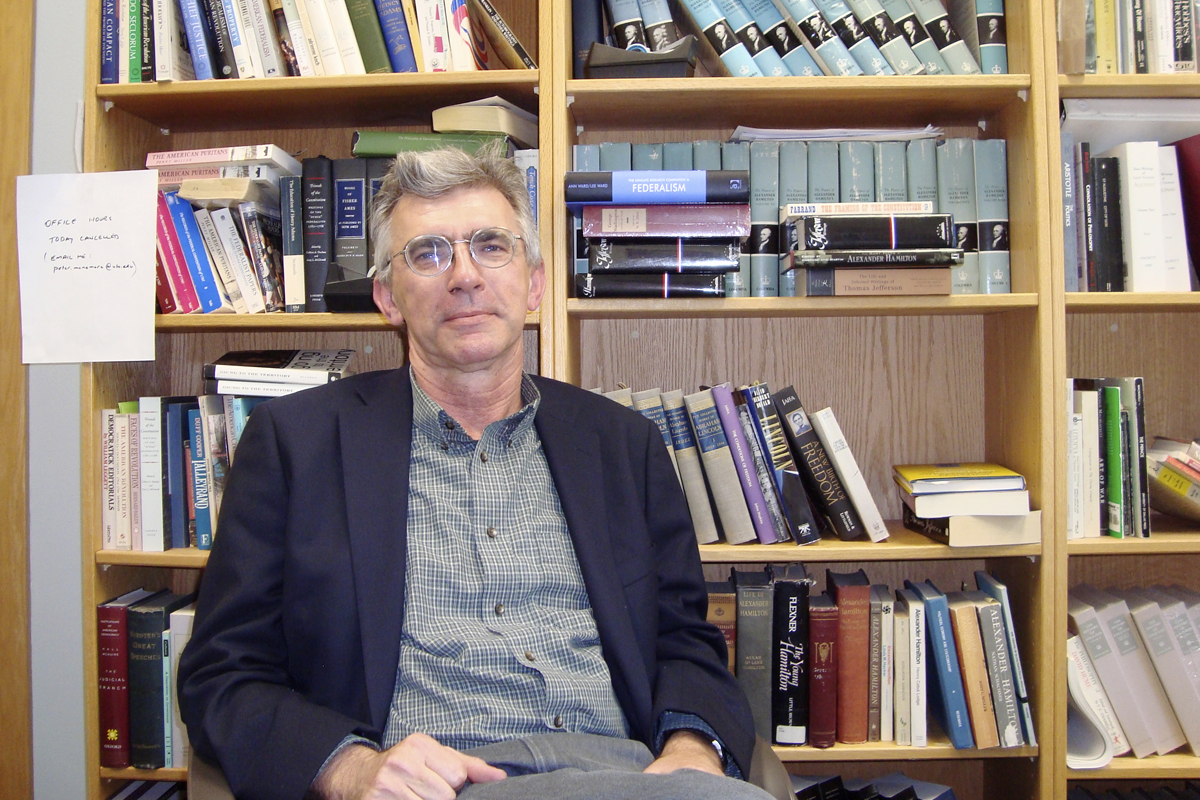Economist turned political professor
USU political science professor Peter McNamara never thought being a teacher was in his life tapestry.
“This was all unplanned. I never expected to become a teacher, but I am glad it worked out that way,” McNamara said.
McNamara was born in Brisbane, Australia, but said he moved around a lot due to the fact that his father was an Australian detective. After high school, McNamara went to university in Brisbane and studied economics.
McNamara then went on to work for the Australian government in the Treasury Department for two years before coming to the United States. He said he really enjoyed working for the government, but he wanted to travel and continue his schooling.
“It wasn’t the most thought-out step that I took, I wasn’t even sure what I wanted to get my Ph.D. in,” McNamara said.
McNamara came to the United States and attended Boston College, where he decided to study political science. Though he had studied economics before, he wanted to study something more broad and out of the box, he said. He focused mainly on how politics fit into the human life and he also became very interested in the founding of America.
“I loved Boston and I loved political theory. In Boston they take the two things I love very seriously; sports and politics,” McNamara said.
McNamara was in Boston for nine years before coming to teach at Utah State. Though McNamara liked working in the government and being an economist, he said he finds teaching more interesting. However, he continues to study economics and has been invited to give guest lectures. McNamara teaches political theory and a few graduate classes.
McNamara said political theory has two parts, and they don’t necessarily point in the same direction. The first part is studying the great political questions, such as “What is justice?”, “What is the best form of government?” and “What is human nature?” The other part is to think about how those ideas make political life and how to approach those political questions.
Political theory tends to spill over into different disciplines such as history, philosophy and English, McNamara said.
“Unlike many of my colleagues, who are mainly with political scientists, I find myself around historians, philosophers and economists. It’s fun,” McNamara said.
McNamara said he never really thought about teaching until he actually got a job teaching, but it came naturally to him. McNamara said having good teachers in the past showed him what good teaching is.
“Professor McNamara really knows his stuff. He seems to be able to answer the questions he asks and brings up some really interesting points. I really like how the class is set up,” said Cameron Cutler, a senior majoring in public relations and student of McNamara’s.
Though political theory does not sound very interesting, McNamara said most students really enjoy the class after they get over a few hurdles.
“I really like the content that we have been asked to read. A lot of it has been really insightful and interesting. The assigned reading can be a bit long, but it is good stuff to read,” Cutler said.
McNamara said he enjoys an open class where students are free to express how they feel about the subject matter. McNamara said he feels it is important to listen to your students because sometimes they can be smarter than you are.
“Every day you and a group of students have a conversation about someone very impressive like Plato or Machiavelli,” McNamara said.
McNamara said trying to pick a favorite philosopher was similar to choosing between the Beatles and the Rolling Stones, it is almost impossible. But he said when dealing with day-to-day politics, Aristotle, Machiavelli and Locke had the most insight. However, McNamara said Plato is still the best at dealing with the big questions of society.
McNamara said if there was any advice he could give college students today, it would be to try hard classes, write well, be able to read a difficult book and speak a foreign language.
“When you go out in the world make sure you are flexible because the world is rapidly changing,” McNamara said.
– chelsee.niebergall@aggiemail.usu.edu

